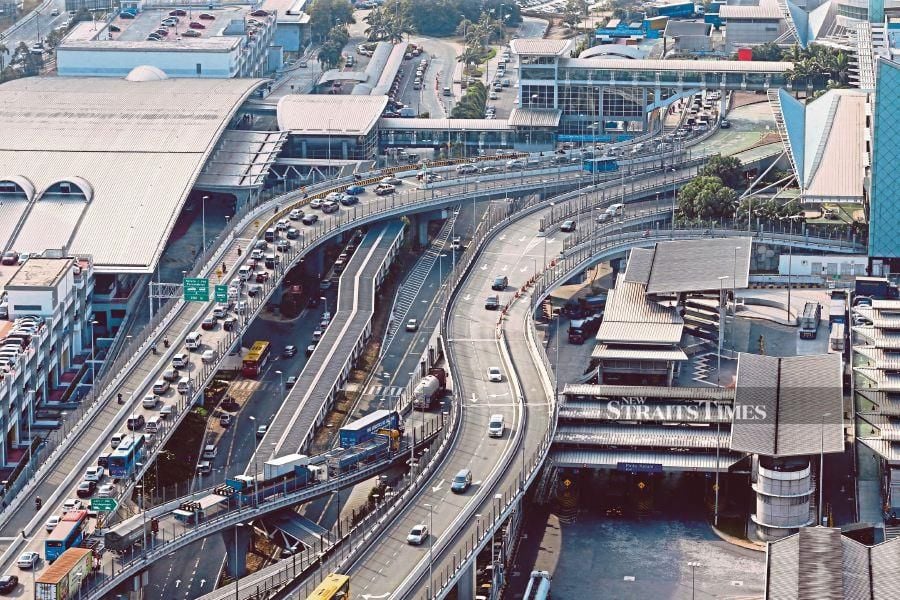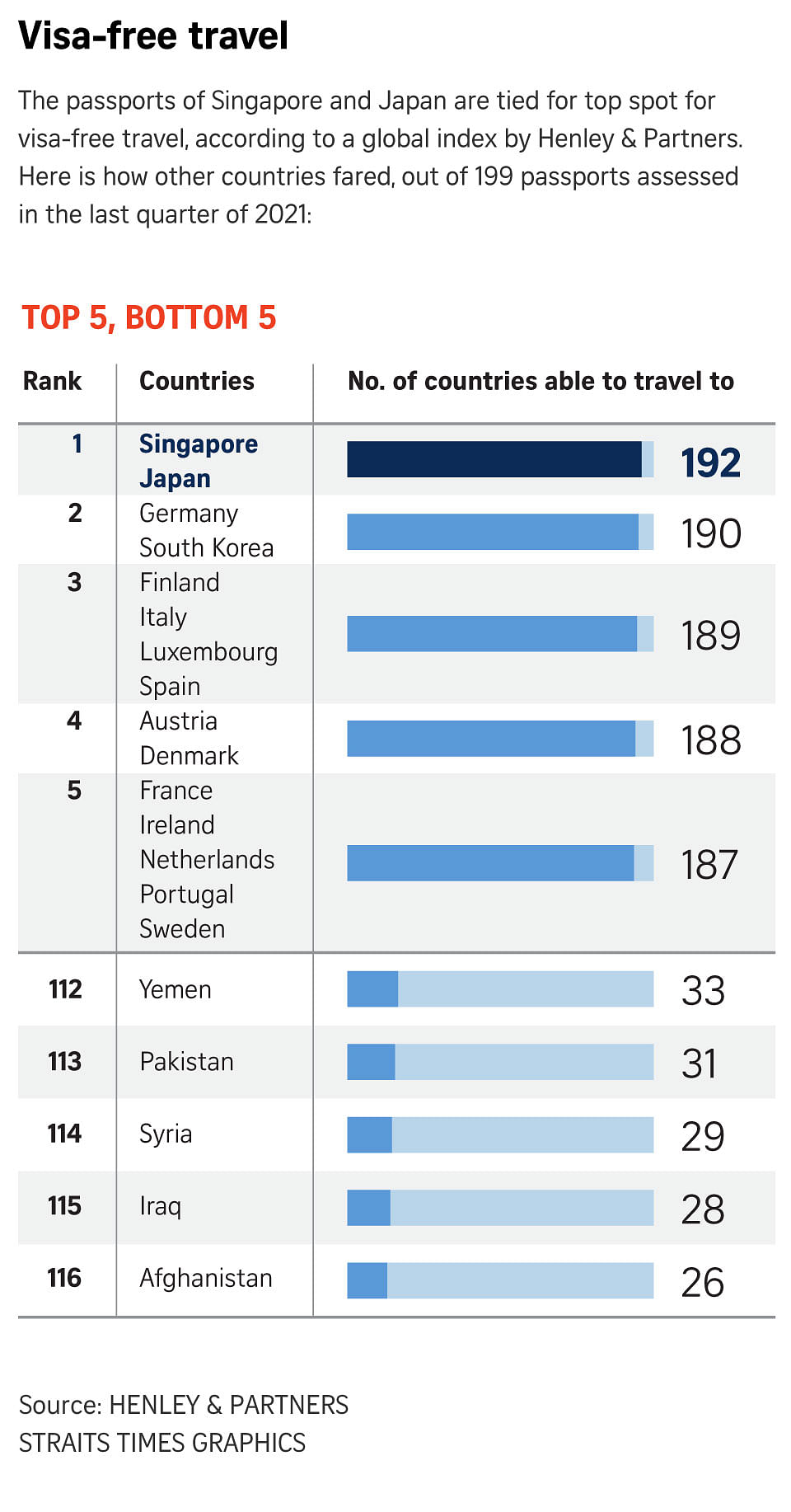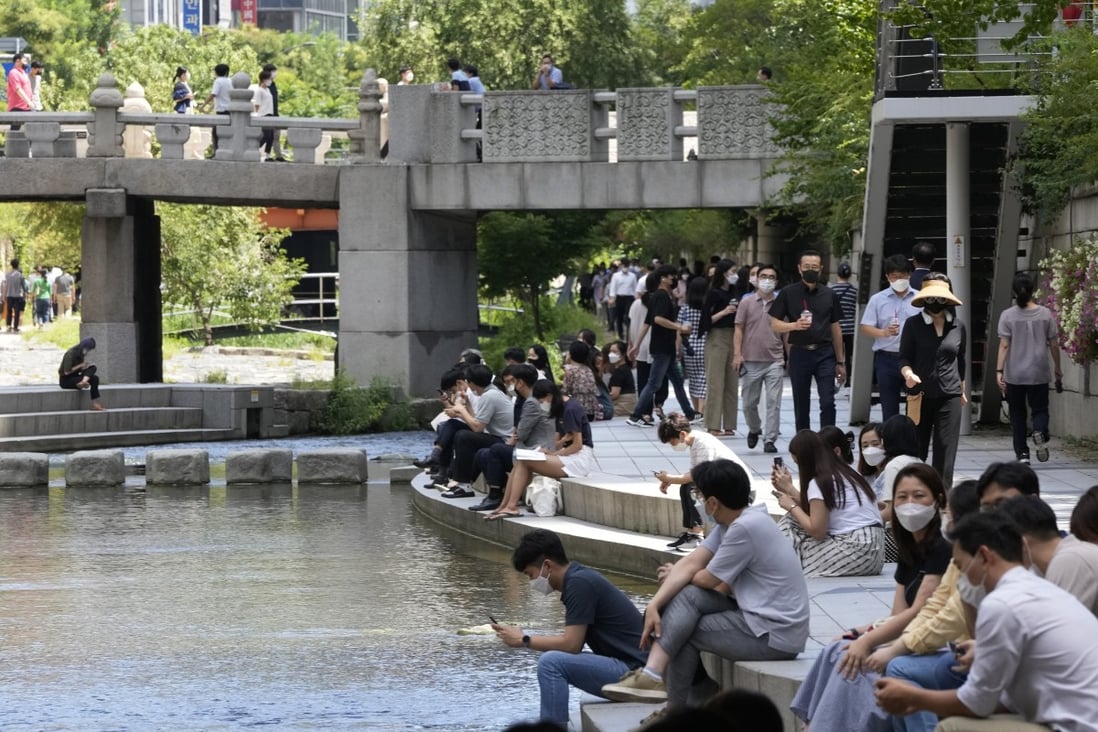S. Korea's daily Covid cases hit new high of nearly 40,000 cases
https://www.thesundaily.my/world/s-korea-s-daily-covid-cases-hit-new-high-of-nearly-40000-EH8832745 Coronavirus: Week of Jan. 30 to Feb. 5, Singapore has record new infections
https://asia.nikkei.com/Spotlight/Coronavirus/Coronavirus-Free-to-read/Coronavirus-Week-of-Jan.-30-to-Feb.-5-Singapore-has-record-new-infections-but-few-deathsYou are rawr-some: A person in a dinosaur costume checking in on children waiting their turn and receiving the Covid-19 vaccine jab at a vaccination centre in Kota Damansara. — AZHAR MAHFOF/The Star
Health experts are calling on Malaysia to fine-tune its Covid-19 mitigation strategies to cope with the Omicron surge as the nation braces itself for the wave of cases, which is expected to last some weeks.
`
This comes as Malaysia recorded over 10,000 cases over the past 24 hours, something which it had not seen since October.
`
Epidemiologist Dr Sanjay Rampal warned that the peak of this new wave of Covid-19 cases would be felt in the coming two or three months.
`
He explained that the reason for this could be due to the community transmission of the Omicron strain and decreased health seeking behaviour following the floods at the end of last year.
`
“If the recent increase is due to the Omicron strain, I believe that could breach the 20,000 daily cases in four weeks,” he said when contacted yesterday.
`
The Health Ministry had also predicted that Malaysia’s Covid-19 cases would continue to show an upwards trend in the coming weeks.
`
However, following the precedent in other countries like South Africa, Britain and the United States, where the strain had peaked and ebbed, the surge was likely to last weeks and not months.
`
For example, according to Our World in Data, the number of new cases recorded in Britain were over 847,371 on Jan 31 but this had fallen drastically to over 60,114 by Feb 5.
`
Similarly, new cases in South Africa peaked at 26,389 on Dec 15 but had fallen to 8,078 cases by Jan 4. On Feb 5, there were 6,135 cases.
`
Health authorities, said Rampal, could manage the coming Omicron wave by getting ready the country’s public health services, testing facilities, and primary health care facilities to cope with the possible exponential increase in demand for prevention activities.
`
“A failure to plan for surge capacity at the district level will lead to our public health services being overwhelmed and higher levels of Covid-19 community transmission.
`
“Although the stress to our hospitals will be relatively lower in this new wave, I expect a very much higher demand for primary health care services,” he added.
`
Immunologist Datuk Dr Musa Nordin said the Health Minister would need to take a proactive stance and sound the clarion call to counter the onslaught of Omicron by reactivating the Covid-19 National Task Force (NTF).
`
Originally known as the Greater Klang Valley Special Covid-19 Task Force (GKVSTF), the NTF is made up of an inclusive, coordinated multi-agency or sectorial team with varying expertise in pandemic management.
`
“The GKVSTF had successfully flattened the Delta curve when earlier efforts, including MCOs and Emergency Ordinances (EO), failed, causing critical case numbers to spike in July last year, resulting in a total collapse of health care services, and a catastrophic number of deaths,” said Dr Musa.
`
He also noted that the entire workflow involving district hospitals, quarantine centres, government and private hospitals must be comprehensively addressed, with the implementation of an end-to-end automated outbreak management system.
`
“Omicron has also taken a toll on health care workers with many falling sick. It is important that our health care workers are all boosted with mRNA vaccines to ensure that we are not short-staffed when Omicron really hits us.
`
“There is no need to reinvent the wheel. We have a working model (GKVTF) and modus operandi that successfully dealt with the Delta wave,” he suggested.
`
Universiti Kebangsaan Malaysia health economics, hospital and health management’s Prof Dr Sharifa Ezat Wan Puteh said if proper mitigation plans were not implemented by the relevant authorities, the numbers would continue to go up in the next few weeks.
`
“I would strongly urge the authorities to come up with a proper mitigation plan to address this.
`
“I am not saying that they should implement a full movement control order because of its adverse impact including to the economy. But they can implement measures, such as enhanced movement control orders, in certain high risk areas, and re-look at prevention plans to limit movement in public areas like offices and schools,” she said.
`
“Those who are able to work from home can continue to do so or perhaps employers can consider implementing a hybrid working arrangement,” she said.
`
Although Omicron cases were reportedly less severe, Dr Sharifa Ezat urged everyone not to take the situation for granted due to the rapid transmission.
`
“It is true that we should not panic but if we don’t do anything, the situation will worsen as fatalities are still being recorded,” she said.
`
On whether the numbers would continue to climb, Universiti Putra Malaysia medical epidemiologist Assoc Prof Dr Malina Osman believes this will largely depend on the public’s commitment to adhere to all the standard operating procedures (SOP).
`
“I think the community should play a role as well and help our frontliners from being further overburdened by practising all the SOP,” she said.
`
In other countries, including Denmark and Britain, governments have announced plans to lift all their domestic Covid-19 restrictions with Omicron not being categorised “as a severe disease for the vaccinated”.
`
However, face coverings are still required in healthcare settings, including hospitals, and on public transport.
`
Covid passes are also not required for large events and at public venues, and people are no longer being advised to work from home.



































